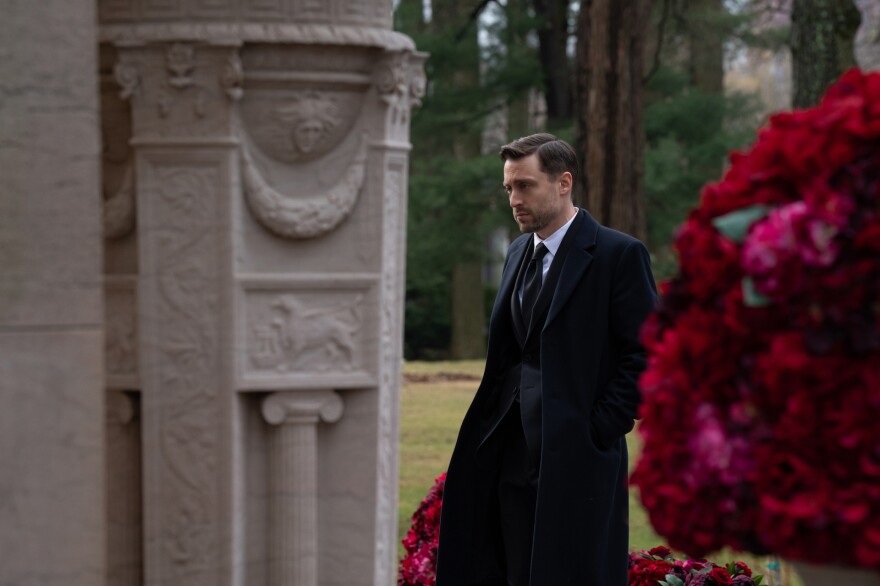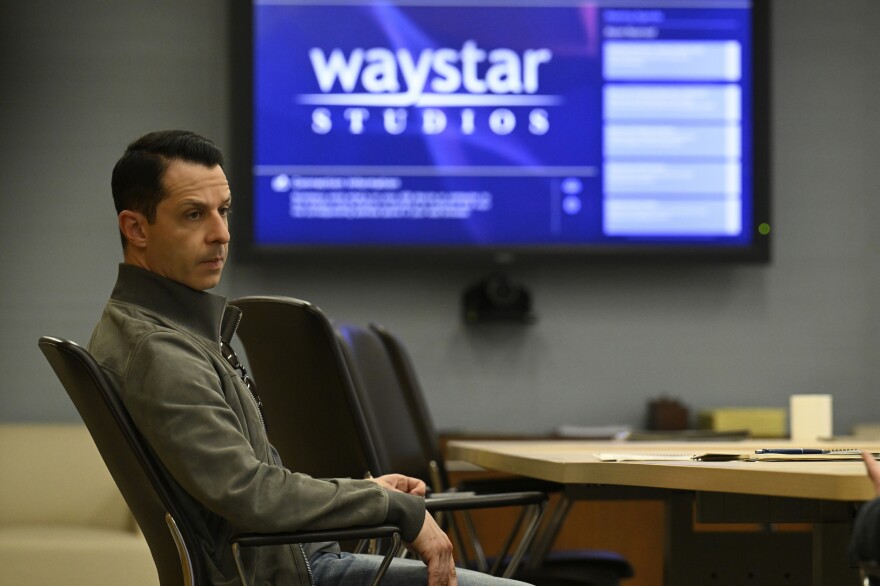There's a simple reason why the final season of HBO's incisive black comedy Succession has been so affecting to me, and it's not about the razor-sharp acting, the almost-prescient storylines centered on politics and wealth, or even the shocking, early death of outsized patriarch Logan Roy.
It's because this season has been a searing journey, focused on a powerful, supremely dysfunctional family, forced to face the truth about itself.
And as Succession unveils its widely-anticipated final episode Sunday – which will play out over a feature film-sized 90-minutes — I find myself much more interested in how deeply that honesty will cut in the show's final moments than in the question of which Roy sibling might end up running the Murdochian mega entertainment company Waystar Royco (though my money's on Kendall — more on that later).
When personal conflict changes the world
Succession has been a compelling fable of how the personal lives of the families who control so much of our media and entertainment landscape might actually impact our world. How a sibling squabble can result in a thrown election, and how the bubble of privilege created by their wealth so often insulates them from the consequences of their world-shaking actions (Kieran Culkin's Roman Roy stumbling into a street protest sparked by the election call in the last episode was a striking, devastating exception.)
As the Murdochs, Sulzbergers, Musks and Bezoses of the world transform our media and political institutions in real life, it's worth meditating on the ways broken marriages, family rivalries and bad parenting can lead to seismic decisions affecting all of us.
In telling these stories, Succession becomes more than just darkly comic entertainment. It's a warning and a rallying cry – a fiercely entertaining cautionary tale about leaving the fate of our world to the fickle impulses of emotionally stunted plutocrats.
So, where were we?
In the show's last episode, centered on Logan's funeral, we saw that dynamic up close. James Cromwell gave a brilliant performance as Logan's acidly contemptuous brother Ewan, offering a surprise eulogy with tough details from their childhood — including Logan's belief that he gave their baby sister the polio which killed her. Ewan's cold conclusion: Logan was mean and "he fed a certain kind of meagerness in men."
But that commanding speech — which was so tough to remember, Cromwell thought he might get fired from the show — was just a set up for the episode's real acting triumph: Culkin's work as Logan's youngest child, Roman, whose façade of confident detachment crumbled during Ewan's speech. As the grief he had been denying for days rose up, Roman broke down in front of the world, unable to deliver his own eulogy to a father who never really respected him.

The tough truths kept coming: Caroline (Harriet Walter), Logan's second wife, ensured all his wives and mistresses sat in the same pew of the church, admitting they were all connected in a way that transcended anger or conflict. And frazzled daughter Siobhan "Shiv" Roy (Sarah Snook) acknowledged her life was harder because her father couldn't really relate to strong women.
Kendall, (Jeremy Strong) who took over the eulogy for his brother Roman, landed on the idea that the gigantic wealth his father created was the lifeblood of the nation, and likely his greatest legacy. In that moment, he was speaking the language of his father — concluding he was a great man, not because of his achievements as a parent, husband, lover, or any specific initiative, but because of his money.
(I'll pause here to disagree with Brian Cox, who has griped that his character Logan should have stuck around longer. It was inspired and necessary to exit Logan from the story early on – and he would never leave his company unless he died — in order to focus on the siblings. Hats off to showrunner and creator Jesse Armstrong for going there when it was as shocking for the audience as every character on the show.)
Who will actually succeed Logan Roy?
Of course, it's Kendall who has been angling, all along, to become the man his father was. (Critics, who were given early access to most episodes this season, have not been shown the series finale. So I'm just guessing when I predict he winds up top dog when the dust settles on Sunday; lots of other fans are hoping hapless cousin Greg, played as an eager, corruptible naif by Nicholas Braun, winds up in charge).
Kendall's thwarted ascension to lead Waystar Royco kicked off the series four seasons ago, beginning a journey where he became his father's nemesis before drawing Roman and Shiv into an alliance. Now Kendall's recruited his dad's former bodyguard to work for him, hatching a secret plan with Roman to purchase the tech company that is publicly attempting to buy Waystar Royco.

In past seasons, I've most enjoyed moments when the siblings were actually effective. Back then, great hunks of episodes were fueled by the absurdity of watching these entitled offspring repeatedly fail to measure up as the kind of figures Logan once called "serious people."
But occasionally, when they made something happen – when Shiv persuaded a former employee not to testify against the company, or Kendall refused to take the fall for a corporate scandal – the spoiled caricatures became characters, and we could see hope in their struggle to somehow matter in a world where everything revolved around their withholding, omnivorous father.
This season, those landmark moments have come when the characters face reality. Like Shiv struggling with a husband she takes for granted, can't stand and can't completely let go – straining to be honest with him outside of ferocious arguments where they finally say what they actually feel about each other. Or when Kendall finally decides to stop trying to become a more enlightened version of his father and just leans into what's necessary to achieve his goals, regardless of the cost.
The show has managed whip smart commentary on politics this season, offering an election episode which could be a blueprint for how a dangerous political party could team with a ruthlessly partisan cable news channel to declare a result in a contested election (for those of us who saw balloting issues in Florida nullify thousands of votes in the 2000 presidential election, that episode brought painful flashbacks).
But as insightful and plausible as that nightmarish episode was, its real power came from seeing how the personal foibles of the siblings led to massive consequences for the world.
Going out in good company
The show ends its run as part of a trifecta of TV finales next week, including HBO's Barry and Apple TV+'s Ted Lasso. Given all the big storytelling swings these shows have taken this year, their end signals a significant loss for fans of quality TV – especially given that the ongoing Writers Guild of America strike may delay efforts to develop new series.
Still, even among these TV giants, Succession looms large. Though the show struggled to find its tone in the first season, once Armstrong found the unique mix of gallows humor and wry drama that powers the series best moments, he has only refined and sharpened that formula to build a relentless story powering to a much-anticipated conclusion.
Copyright 2023 NPR. To see more, visit https://www.npr.org.




